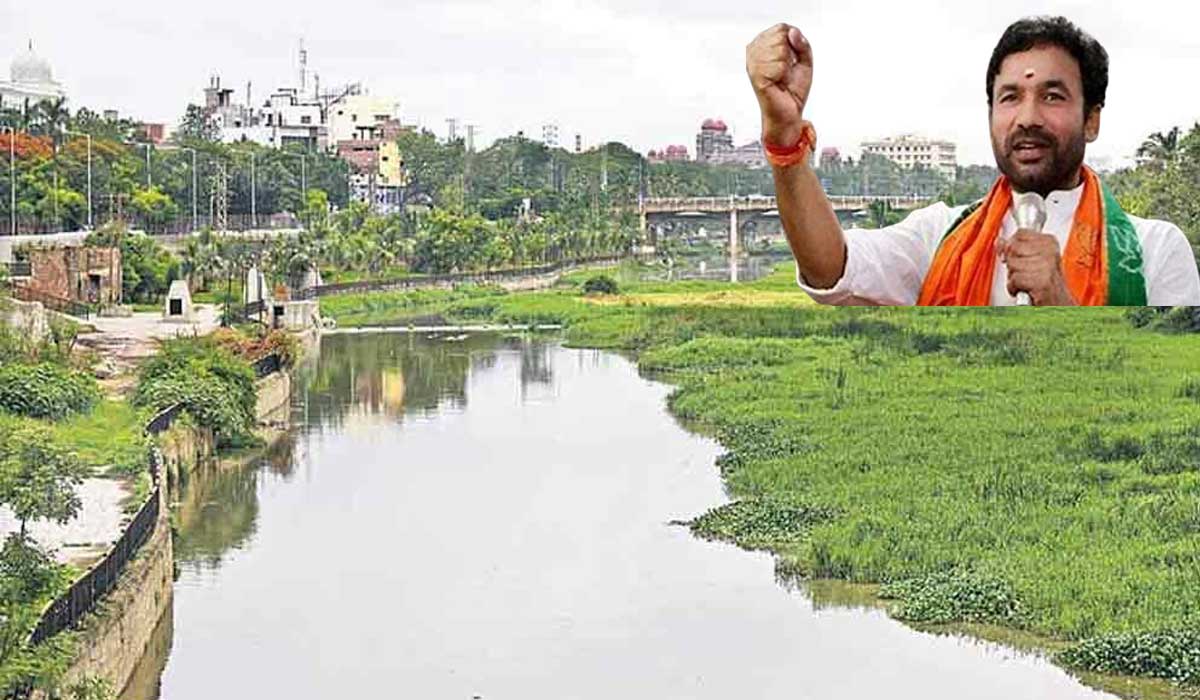Hyderabad Demolition of Houses Was Not a Solution: Kishan Reddy on Musi Rejuvenation Plan
Hyderabad Demolition of Houses Was Not a Solution: Kishan Reddy on Musi Rejuvenation Plan

Hyderabad Demolition of Houses Was Not a Solution The ongoing Musi River rejuvenation and beautification project in Hyderabad has sparked heated debates, with Union Coal Minister and State BJP President G Kishan Reddy openly criticizing its execution. Reddy has raised significant concerns about the impact of the project on the city’s poor, claiming that the initiative disproportionately benefits real estate developers while displacing vulnerable communities.
In this article, we delve into the details of the controversy, highlighting key statements from stakeholders, the project’s implications, and potential alternatives to ensure an equitable solution for all.
Hyderabad Demolition of Houses Was Not a Solution Musi Rejuvenation: A Boon or Bane for Hyderabad?
The Musi River, an iconic waterbody in Hyderabad, has long been a subject of restoration discussions. The Telangana government recently launched an ambitious rejuvenation and beautification project aimed at reviving the river and turning its surroundings into prime urban spaces. However, this vision has not come without criticism.
Key Allegations by Kishan Reddy
Kishan Reddy has strongly opposed the demolition of houses along the Musi River as part of the government’s project. During a media interaction, he stated:
- Demolition Is Not the Solution: “The easiest way for the government is to construct retaining walls along the Musi instead of destroying the homes of poor families,” Reddy said.
- Benefiting Real Estate Developers: Reddy alleged that the beautification plan is a thinly veiled attempt to boost profits for real estate developers at the expense of local residents.
Reddy clarified that the BJP supports the rejuvenation of the Musi River, but not at the cost of displacing economically disadvantaged families.
A Ticking Time Bomb for Musi Zone Families
Residents living along the Musi River zone are gripped by fear and uncertainty. The planned demolitions as part of the government’s initiative threaten to upend their lives. Reddy described the situation as a “ticking time bomb,” highlighting:
- Families are anxious about losing their homes.
- Many feel the government’s plans prioritize urban beautification over human welfare.
- Lack of clear communication from the authorities has compounded the issue.
Clean the Musi, But Protect the Poor
Reddy criticized the Congress government’s beautification plan, labeling it as diversionary politics. He urged leaders to focus on cleaning the Musi River without resorting to the destruction of livelihoods.
He said:
“The Congress government’s so-called beautification plan is nothing but a cover for destroying poor families’ homes and benefiting real estate developers.”
Hyderabad Demolition of Houses Was Not a Solution Proposed Solutions for a Sustainable Musi Rejuvenation
Kishan Reddy outlined potential alternatives to ensure that the Musi rejuvenation project remains inclusive and sustainable:
- Construction of Retaining Walls: Building retaining walls can protect the riverbanks and prevent encroachments without requiring the demolition of homes.
- Community Engagement: He called on Chief Minister A Revanth Reddy to organize a padayatra (walkathon) to directly engage with affected residents and seek their input.
- Balanced Urban Planning: Any rejuvenation project should balance ecological restoration with the protection of vulnerable communities.
- Transparency and Accountability: Reddy demanded more transparency in project planning and execution, including clear timelines and communication with stakeholders.
Diversionary Politics: KTR vs. BJP
The controversy has also triggered political clashes between the BJP and the Congress-led government. Telangana IT Minister K.T. Rama Rao (KTR) accused the BJP of playing diversionary politics and shielding Congress from accountability.
While Reddy insists the BJP’s stance is rooted in empathy for affected families, KTR argues that such opposition is politically motivated.
Potential Impact on Real Estate Development
The Musi River rejuvenation project is expected to unlock significant opportunities for real estate developers, as prime riverside properties become more accessible. However, this has led to concerns about the gentrification of neighborhoods and the displacement of poor communities.
Key Takeaways for Real Estate Stakeholders:
- Urban beautification may boost property values in nearby areas.
- Ethical concerns arise over displacing low-income families for commercial gains.
- Long-term sustainability depends on inclusive planning.
A Call for Equitable Development
The ongoing debates around the Musi rejuvenation project underline the need for balanced development. Reddy’s concerns emphasize the importance of:
- Inclusive Growth: Development should uplift all sections of society, especially marginalized groups.
- Environment and Economy: Reviving the Musi River can boost Hyderabad’s ecosystem and economy, but not at the expense of human welfare.
Conclusion
The Musi River rejuvenation project is a landmark initiative with the potential to transform Hyderabad. However, as Kishan Reddy aptly pointed out, the government must tread carefully to ensure that its efforts do not exacerbate inequality or displace vulnerable communities. By prioritizing retaining walls, engaging with affected families, and promoting sustainable urban planning, the project can become a model for equitable development.
